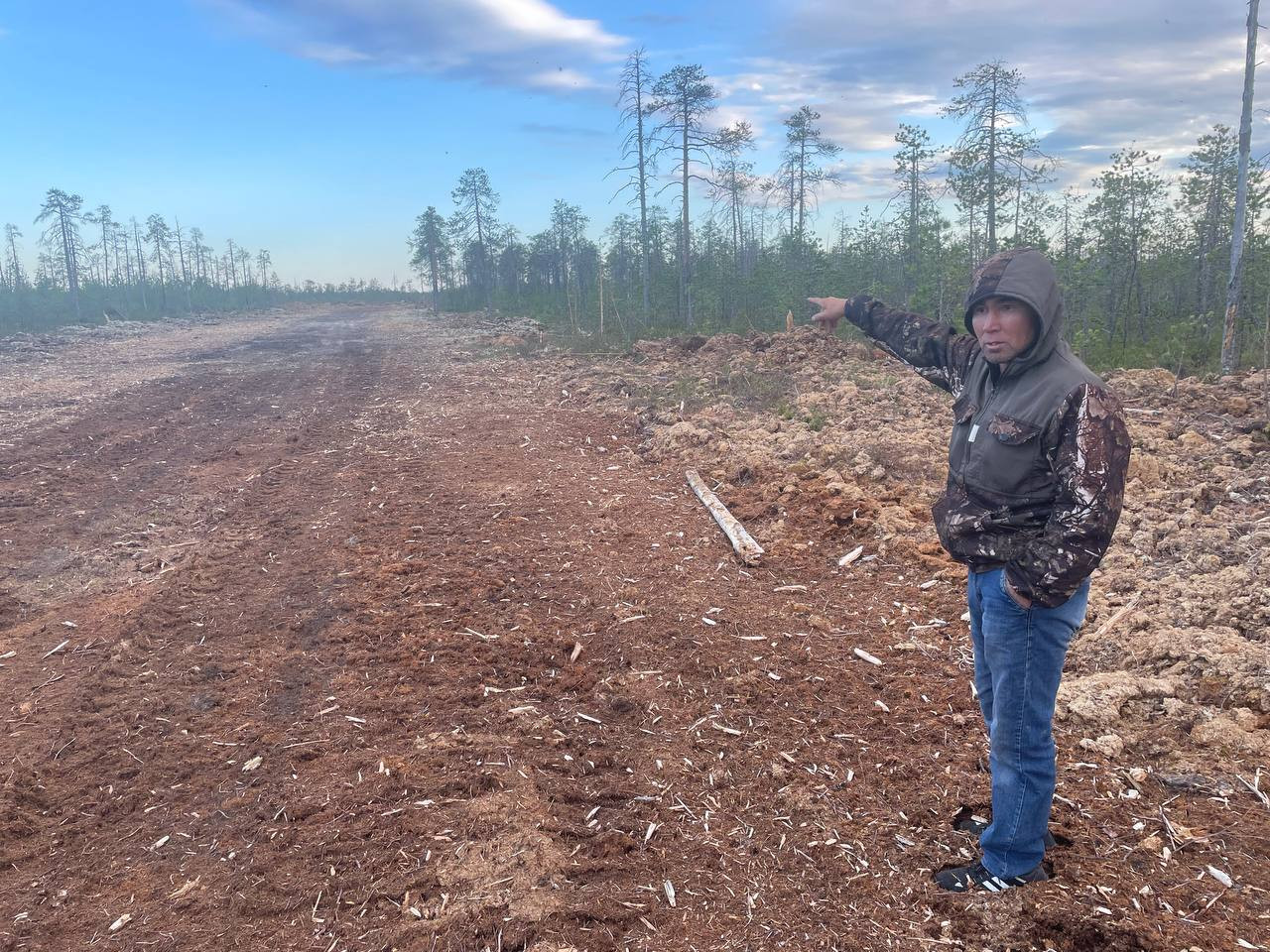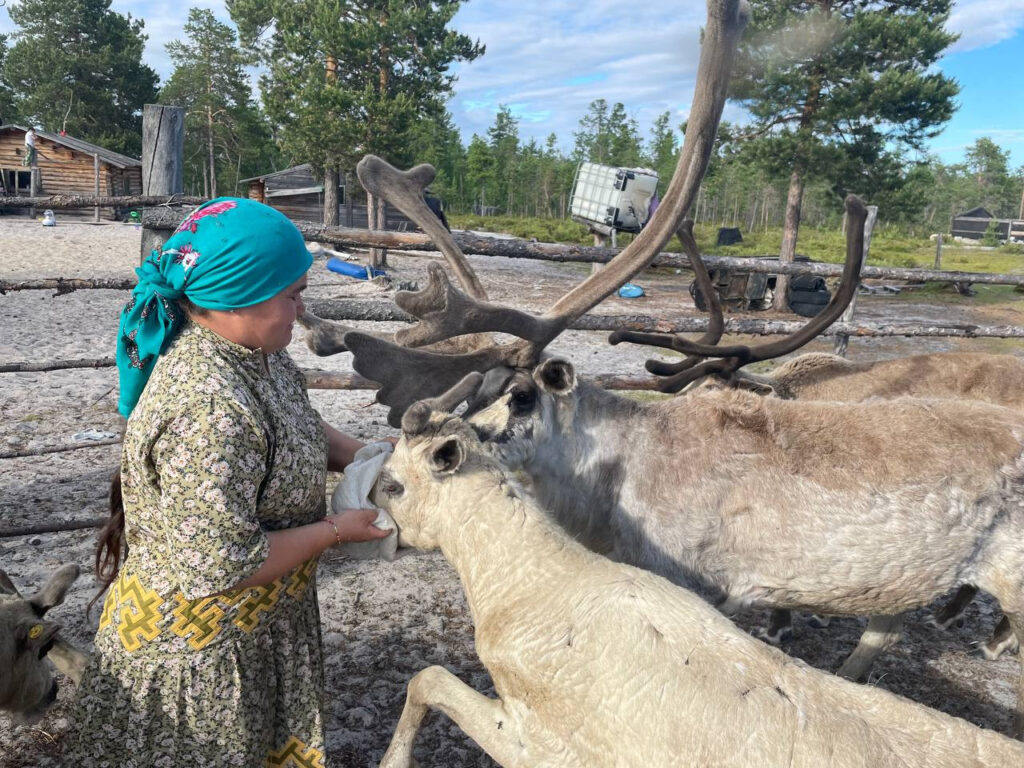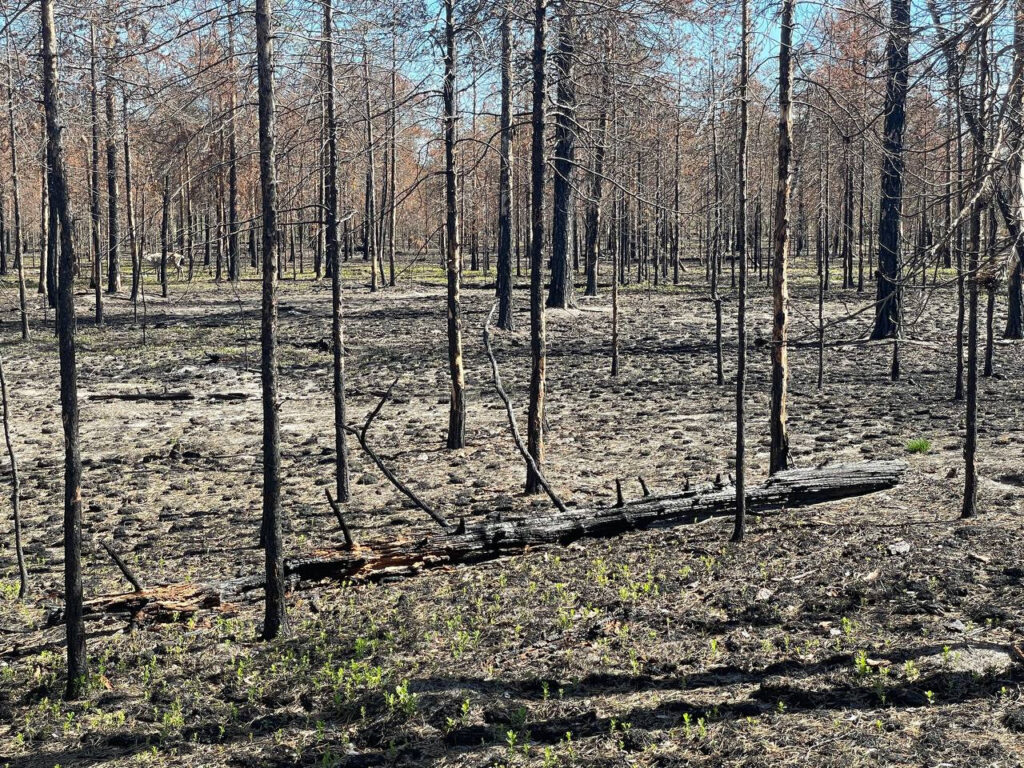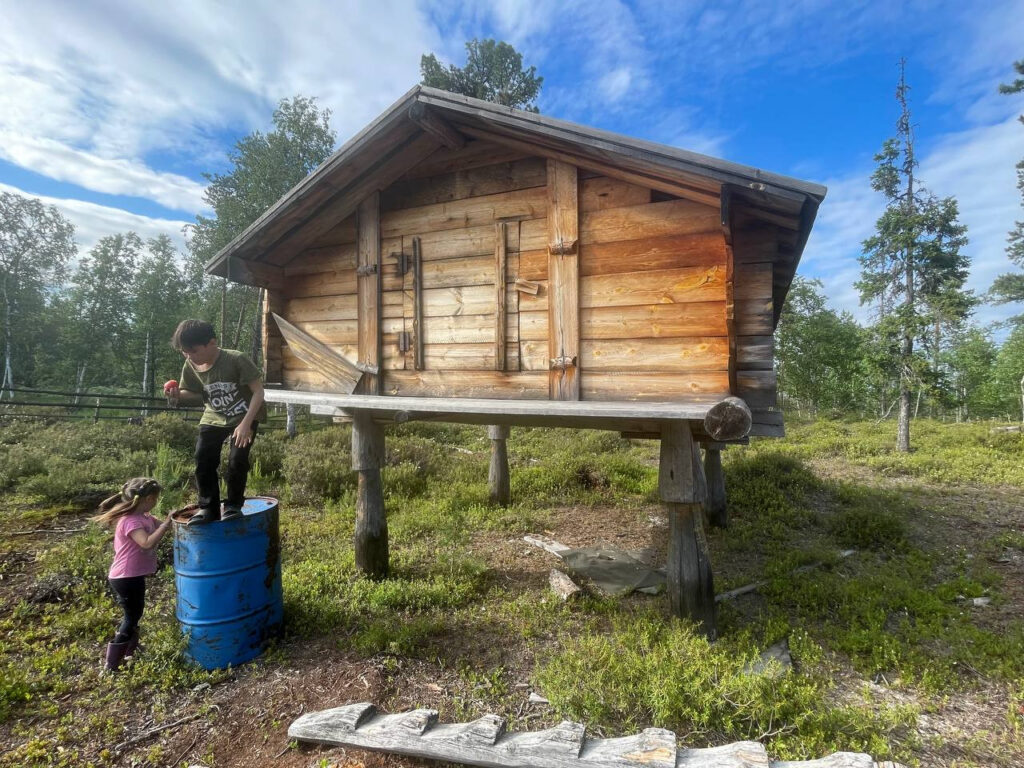“We are nobody here…” A report from Yugra, where oil workers are displacing the Khanty from their ancestral lands

In the summer of 2024, human rights advocates from the “Public Radar” project appealed to Russian authorities with a proposal to amend legislation allowing industrial companies to exploit lands traditionally used by Indigenous peoples. This initiative stemmed from complaints by residents of the Khanty-Mansi Autonomous Okrug – Yugra, where oil companies have been building infrastructure on ancestral lands for decades without the owners’ consent.
These ancestral lands, legally known as territories of traditional nature use, are granted to Indigenous peoples for activities like reindeer herding, fishing, and gathering berries and mushrooms. However, these communities do not have ownership rights over the land.

Oil companies, by contrast, operate with few restrictions. Although regional laws require them to coordinate with Indigenous representatives before establishing infrastructure, refusal is not an option. The federal agency Rosnedra issues oil extraction licenses without considering the Indigenous stance. Therefore, negotiations often focus on compensation rather than consent.
If any Indigenous community members refuse compensation and simply ask that no oil extraction occur on their land, the drilling proceeds regardless. The dissenters are told to file complaints, where the legal machinery of the oil corporations works against them.
As a result, many Indigenous communities have resigned themselves to the situation. The bravest only fight for fair compensation, as the oil infrastructure not only occupies their land but often malfunctions, leading to oil spills. In places where oil contaminates the soil, reindeer cannot graze, and berries won’t grow.
A correspondent from “Kedr” visited the ancestral lands in the Surgut district of Yugra to document how corporations are displacing Indigenous peoples from their territories.
This article discusses the current struggles of the Indigenous peoples of Khanty-Mansi Autonomous Okrug: what they are fighting for and their current demands.
We previously covered how the Khanty fought to protect their lands and way of life in past years, even pushing for a referendum to ban the expansion of oil drilling, only to be suppressed by the authorities, in our report “Oil – The Provider”.
Forbidden Territory
“You need to warn me to stop; I might forget and drive you straight to the checkpoint, and no one will get through. Russians aren’t allowed at the camps unless they’re oil workers,” said Anatoly Vandymov, a Khanty man, driving an old car through the taiga. We were headed 150 km from the village of Nizhnesortymsky to Anatoly’s ancestral lands, where he lives with his family and where his two dozen reindeer graze.
Our party included Vandymov, me, and a guide named Oksana, with whom I would navigate the forbidden area. In the 2000s, the company Surgutneftegaz set up checkpoints and began restricting non-Indigenous residents from accessing oilfields and ancestral lands. Initially, this was done at the request of the Khanty themselves, who were frustrated by outsiders hunting and fishing. But over time, these restrictions turned against the Indigenous people: now, the Khanty need Surgutneftegaz’s permission even to visit neighboring ancestral lands where oil is being extracted.
The journey from Nizhnesortymsky to the camp takes about two hours, a trip Vandymov makes several times a week to buy supplies. Anatoly, aged 40, is short and, like many Indigenous people, looks younger than his years. At home, his four children and wife wait for him, while his eldest son has already grown up and found a bride.
Vandymov, like nearly everyone here, works for Surgutneftegaz as an inspector, checking for pipeline ruptures. According to Anatoly, locals are rarely promoted to higher positions within the company, and there’s no other work in Nizhnesortymsky that allows them to maintain their traditional lifestyle. Anatoly adds with a grin that he took the job at Surgutneftegaz to keep an eye on the oil workers and what they do on his land.
In his spare time between shifts—two weeks on, two weeks off—Vandymov fishes, tends to his reindeer, and hunts.
To enter Khanty ancestral lands, we had to pass through the oil company’s checkpoint, located halfway between the village and Vandymov’s lands.
“The guards at the checkpoint are often rude to locals. There was an incident with my younger brother; they wouldn’t let him onto our lands because he was traveling with another Indigenous man whose lands are elsewhere. When my brother asked to see their documents, they told him he ‘wasn’t grown enough to ask for documents’—he’s 22! When he threatened to report their behavior, one of the guards said that if nothing happened after the complaint, he’d beat my brother up. How can they act like this? Whenever we complain or speak to the media, security becomes stricter, and the guards’ rudeness increases,” says Anatoly.
Eventually, the security staff received a disciplinary talk, according to the company. Surgutneftegaz responded to Anatoly’s complaint by saying, “We conducted a preventative conversation with the security guards regarding inappropriate behavior towards citizens.”
Non-Indigenous people who do not work in the oil industry are not allowed past the checkpoint—even to visit Khanty friends. The Khanty believe Surgutneftegaz fears environmentalists or journalists might infiltrate oil extraction zones. Indigenous people from other areas cannot pass the checkpoint without permission from the company’s Indigenous Affairs engineer.
The car stops a couple of kilometres before the security checkpoint. From here, Oksana and I continue on foot through the burned forest, where a fire swept through last year. Our feet sink into the deep moss.
Suddenly, a reindeer appears among the blackened trees. It has strayed from its herd and looks around nervously. Oksana tells me we must catch up and photograph it to find its owner, but the reindeer allows only a distant snapshot before fleeing at the slightest movement.

Reindeer are not just livestock for the Khanty. Their hides are used for clothing, and they pull sleds through deep snow into the taiga.
“Reindeer can live without humans, finding their food, like lichen. But they must be supplemented with grain or fish, and in summer, smoke is used to drive away mosquitoes,” says my guide.
We eventually reach the road where Anatoly is waiting. The drive continues for another hour and a half. This industrial road was built by Surgutneftegaz, and the oil workers often remind locals that they benefit from it, though it wasn’t built for the herders but to transport employees and oil. There are about a hundred exploration wells, cluster pads, oil and gas extraction workshops, pipelines, and gas turbine power stations on Vandymov’s ancestral lands.
Anatoly’s family has held these lands for three generations. He and his wife, mother, and brother’s family tend a herd of twenty reindeer. However, herding is becoming increasingly difficult due to expanding oil extraction.
“We have few reindeer, but it’s hard to manage them because of the roads where they are often hit by cars, and the pollution. We’re forced to move farther away, but we have less and less land.”
The oil workers bury domestic waste and spilled oil products near the well pads. During accidents, oil leaks are supposed to be cleaned up and removed, but the companies cut costs. When there’s a spill, they scrape off the top layer of soil and bury it nearby, contaminating the groundwater, explains Anatoly.

The source: https://kedr.media/stories/my-zdes-nikto/